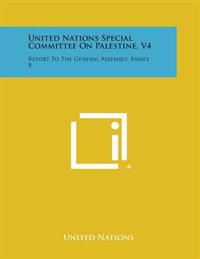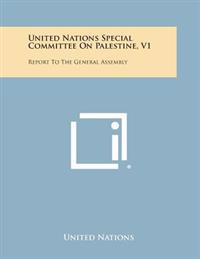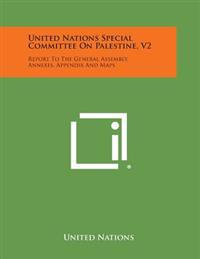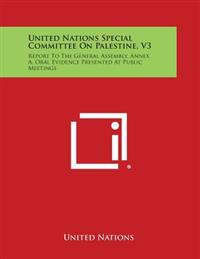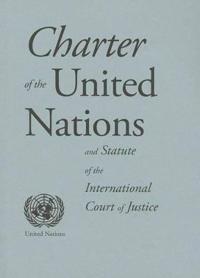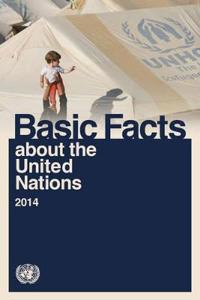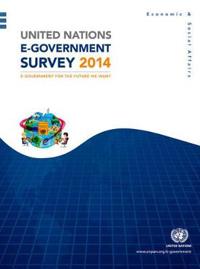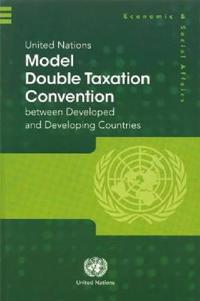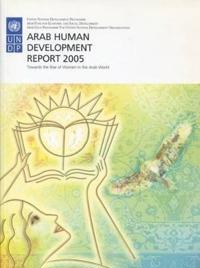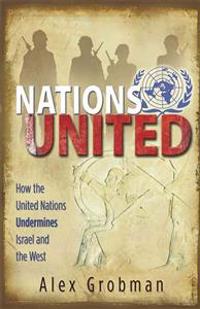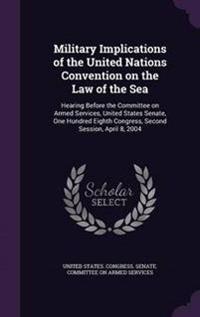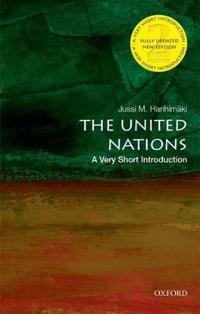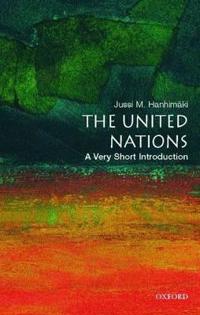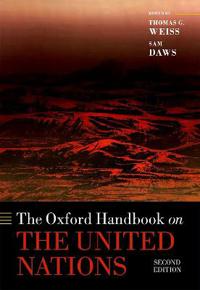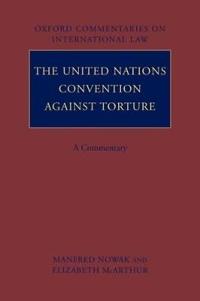United Nations Special Committee on Palestine, V5: Report to the General Assembly, Index to the Report and Annexes (Häftad)
avUnited Nations
ISBN: 9781258734718 - UTGIVEN: 2013-06United Nations Special Committee on Palestine, V1: Report to the General Assembly (Häftad)
avUnited Nations
ISBN: 9781258736965 - UTGIVEN: 2013-06United Nations Special Committee on Palestine, V2: Report to the General Assembly, Annexes, Appendix and Maps (Häftad)
avUnited Nations
ISBN: 9781258737047 - UTGIVEN: 2013-06Agenda 21: Earth Summit: The United Nations Programme of Action from Rio (Häftad)
avUnited Nations
ISBN: 9781482672770 - UTGIVEN: 201303Charter of the United Nations and Statute of the International Court of Justice (Häftad)
avUnited Nations
ISBN: 9789210020251 - UTGIVEN: 197806Basic Facts About the United Nations (Häftad)
avUnited Nations: Department of Public Information
ISBN: 9789211012798 - UTGIVEN: 2013-10This comprehensive handbook designed for the general public explains the structure of the United Nations, how the Organisation works, the main issues it addresses and its importance for people everywhere. In addition to setting out the various roles played by principle UN organs and related organisa[...]
United Nations e-Government Survey (Häftad)
avUnited Nations
ISBN: 9789211231984 - UTGIVEN: 2014-03The UN E-Government Survey serves as a tool for decision-makers to identify their areas of strength and challenges. The Survey assesses the e-government readiness of the 193 Member States of the UN according to a quantitative composite index of e-readiness based on website assessment, telecommunicat[...]
United Nations (including International Organizations and United Nations Forces) (häftad)
ISBN: 9780852597934 - UTGIVEN: 2010-05Nations United: How the United Nations Is Undermining Israel and the West (Inbunden)
avAlex Grobman
ISBN: 9780892216741 - UTGIVEN: 2007-01Rising from the ruins of World War II, both Israel and the United Nations have been on a collision-course ever since, as radical Islam, left-wing agendas, and European meddling have undermined democratic efforts to topple totalitarianism. In a fascinating bit of research that doubles as critical ana[...]
Scott Specialized Catalogue of United States Stamps & Covers 2019: Confederate States, Canal Zone, Danish West Indies, Guam, Hawaii, United Nations (häftad)
ISBN: 9780894875595 - UTGIVEN: 2018-10Military Implications of the United Nations Convention on the Law of the Sea: Hearing Before the Committee on Armed Services, United States Senate, On
ISBN: 9781342362100 - UTGIVEN: 2015-09Catholic Good News Bible (Inbunden)
avUnited Nations: Economic Commission for Europe
ISBN: 9780007202706 - UTGIVEN: 2005-06As the first truly easy-to-read Bible translation, and still the UK's most popular, the Good News Bible is the ideal Bible for personal and church use. This new edition with Apocrypha and Deuterocanonical books is designed for Catholic readers. The Good News Bible was a bestseller from its first pub[...]
The United Nations (Pocket)
avJussi M. Hanhimaki
ISBN: 9780190222703 - UTGIVEN: 2015-05After seven decades of existence has the UN become obsolete? Is it ripe for retirement? As Jussi Hanhimaki proves in the second edition of this Very Short Introduction, the answer is no. In the second decade of the twenty-first century the UN remains an indispensable organization that continues to s[...]
The United Nations (Häftad)
avJussi M. Hanhimaki
ISBN: 9780195304374 - UTGIVEN: 200810The United Nations has been called everything from "the best hope of mankind" to "irrelevant" and "obsolete." With this much-needed introduction to the UN, Jussi Hanhimaki engages the current debate over the organizations effectiveness as he provides a clear understanding of how it was originally co[...]
Law and Practice of the United Nations: Documents and Commentary (Pocket)
avThomas M. Franck, Simon Chesterman, David Malone
ISBN: 9780195308433 - UTGIVEN: 2008-02-21United Nations and the Development of Collective Security, The: The Delegation by the UN Security Council of Its Chapter VII Powers (Pocket)
avDan Sarooshi
ISBN: 9780198299349 - UTGIVEN: 2000-08-03The Oxford Handbook on the United Nations
ISBN: 9780198803164 - UTGIVEN: 2018-07This Handbook provides in one volume an authoritative and independent treatment of the UN's seventy-year history, written by an international cast of more than 50 distinguished scholars, analysts, and practitioners. It provides a clear and penetrating examination of the UN's development since 1945 [...]
You, The People: The United Nations, Transitional Administration, and State-Building (Inbunden)
avSimon Chesterman
ISBN: 9780199263486 - UTGIVEN: 2004-03-18The United Nations Convention Against Torture (Inbunden)
avManfred Nowak, Elizabeth Mcarthur, Kerstin (CON) Buchinger
ISBN: 9780199280001 - UTGIVEN: 2008-06The prohibition of torture - the right to physical and mental integrity - is guaranteed in the strongest terms under international law. It is protected as an absolute right, non-derogable even in times of war or public emergency under many human rights treaties and is also generally accepted as a pa[...]


